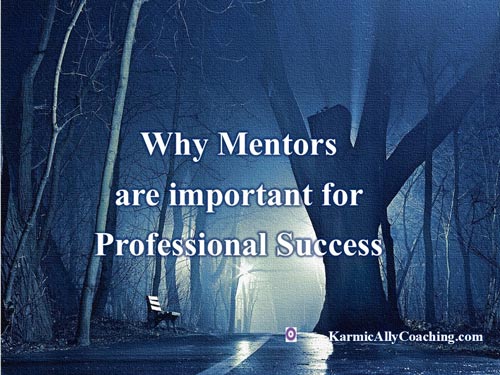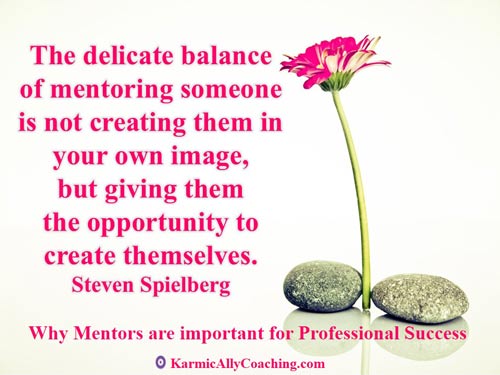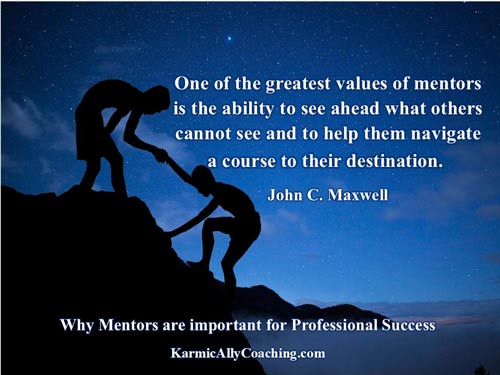This post has already been read 2189 times!

As young professionals, encouragement and guidance from a good boss makes a world of difference to our future career path.
I found a great boss in my first job who used to spend time with his department members and aligning the company’s goals with theirs.
Later in my career, I went on to become one of the youngest Finance Directors of a leading international Insurance company in their then biggest office in Poland. The one constant in both positions was having a male boss who was also my mentor.
I continued to be in touch with the first one until his death. He was truly grieved for. A great man, he’d mentored many of us and in his death, he reunited many of us who are now scattered all over the world.
I’m still in touch with the second one and enjoy watching the photos of his grandchildren and his pet dog on Facebook. He and his wife are family for me.
That’s why I was disturbed to read the findings in a recent survey on the workplace that indicated a backlash after the MeToo campaigns.
- 60% of managers who are men are uncomfortable participating in a common work activity with a woman, such as mentoring, working alone, or socializing together. That’s a 32% jump from a year ago.
- Senior-level men are now far more hesitant to spend time with junior women than junior men across a range of basic work activities such as 1-on-1 meetings, travel, and work dinners.
Without the mentoring of these 2 bosses at different stages of my career, I would have taken longer to achieve what I did.
I firmly believe that women professionals need mentors, sponsors and even champions at work.
Mentoring helps create a sacred space where professionals can work towards achieving their potential while adding value to their organization.
Investing in Emotional Capital is important
In the good old days when I was serving my articleship in London with a respected mid-tier Accounting Firm, in addition to the Principal under whom we did our training, my employer also had another program where a senior manager or Partner was also appointed as their mentor.
I thought it was a normal practice. That was until I worked for a firm where they were the best paymasters in the industry and recruited amazing talent. Yet they had one of the highest attrition rates. Part of our mandate as senior managers was to reduce the attrition rate.
For sure they had a buddy system for new employees for their first 6 months of employment. Most times the buddy and the employee hardly met and there was no accountability.
So, it didn’t come as a surprise when a young newly qualified professional of high caliber told me he had quit.
One can imagine how he felt because he told me he had stated in his exit interview that the firm knew how to recruit talent but needed to work on retaining them!
What a contrast to my experience and his! In fact, my Mentor showed me how to handle tricky situations at work. My Principal’s final guidance before I left the firm and embarked on my professional journey was to always find a good mentor even in an unofficial capacity.

Here’s the deal.
Progressive companies and organizations understand the simple fact that focusing on their financial capital and intellectual capital is not enough to be successful.
They also have to invest in human capital and treat ‘emotional capital’ as another vital asset necessary to recruit, nurture, motivate and above all, retain good people.
In fact, many of my clients come to me for help in managing their careers in an environment where there is inadequate emotional capital.
They don’t use those words specifically, but they talk about emotionally cold bosses, poor staff relations and an HR Team that seems to only train and deal with salary issues. They find client relations feel like walking on eggshells. It’s clear what they’re dealing with.
On the other hand, a company that values good emotional capital and encourages people to achieve their potential sees an increase in return in all forms of capital.
It’s an opportunity for Human Resource, which is often criticized for not doing enough for employees to show their skills by promoting Company Mentorship programs. And also encouraging professionals at all levels to mentor their direct reports and even peers.
But first we need to appreciate why Emotional Capital is so important.
In today’s pressure filled world, organizations need to be more sensitive to the needs of their employees to prevent burnout and make sure that their productivity isn’t compromised.
The cost to company of training an employee who is then poached away by a competitor is all too common. Therefore, it’s important to engage the employee intellectually, offer career prospects and also touch their emotions in order to build loyalty to the organization.
It’s equally important to build the employees emotional intelligence levels.
This is possible if the employer understands and manages the company’s emotional capital.
There are many tools and strategies out there that can help the company achieve its goal.
One of the simplest and most effective ones that can provide employees with the right level of support and guidance enabling them to achieve their potential and prevent attrition, is mentoring.
That’s why there is an increase in organizations, whether small or large starting to run in-house mentoring programs and employees are encouraged to consider mentoring roles in their performance evaluations.
If you want to raise your Executive Presence at work, becoming an informal mentor is worth considering. Especially if there is no formal procedure in place.
In fact, most of the time professionals who want to be seen as leaders mentor their colleagues and teams using their referent power base.

How Mentoring creates a win-win situation
There are many benefits for organizations who implement mentoring programs, namely,
Mentors can assist employees cope with changes within the organization (especially during restructuring and reorganizations) as well as facilitate their learning and development needs.
Mentoring helps build trust and respect for the organization and shows that the employer is serious about the career development path of its employees which helps reduce the incidents of attrition.
There are times when going the normal HR route might not help resolve a conflict or issue whereas a good mentoring partnership can help solve issues, both career and personal by finding ways to counteract stress and pressure.
It isn’t just the organization that benefits from the mentor-mentee relationship.
This is a powerful personal and professional development tool that makes people feel more empowered and confident.
Mentoring also plays a role in building the emotional intelligence of individuals thus contributing to the emotional capital of the organization.
An emotionally intelligent mentor can draw from his or her own experience to guide the mentee on matters that might not be directly related to work, but which impact the mentee’s productivity and performance.
I still remember the time when an hour before I was to drive my car from Minsk to Warsaw, my father’s driver managed to smash my beloved Honda Prelude, He had taken to get the vehicle fueled up but damaged the vehicle at a nasty blind spot with another driver hitting it.
What made it worse was that despite my having asked for a comprehensive insurance, my father had only arranged a Third Party one because we only required the insurance for the journey. After that, I would have gotten new insurance. It was done in good faith but this insurance didn’t cover the bill for $3,000!
Back at work, my boss cum mentor knew I was upset and displayed empathy with a story.
As a newly married person he had smashed his wife’s car while reversing. Insurance didn’t cover it because he had a learner’s permit at the time.
He shared how he had felt and what he did.
Coming from a person whom I admired and who could never do anything wrong, I definitely felt better and took decisive action. This included getting the car repaired and extracting the payment from the other driver who was at fault.
In later years, I’ve noticed my own mentoring style includes stories of similar experiences to help my mentees.
How could it not? After all, both my mentors were also role models for me.

A good mentor will always aim to help explore and improve the emotional intelligence of the individuals they are mentoring.
They understand how to boost the mentees existing skills and experience, training instead of simply relying on the mentees technical and intellectual abilities.
They understand that there is a human being working at the office who needs to be nurtured in order to bring out the best in them.
That’s why current survey results make me wonder.
If managers are not willing to mentor female colleagues, then what will be the impact on the emotional capital of the organization?
For sure female mentors could do the job but that would defeat the purpose of having an authentic mentoring program. We’d be looking at exclusions instead of a whole.
One hopes this is a temporary situation and ambivalence to mentor gender diverse colleagues will soon recede. There is much to be gained through the medium of mentorship.
Have you ever been a mentor? How do you add value to the emotional capital of your organization?
PS. If this post has inspired you to find a mentor to help you advance your career, then you want to check out this resource.




 I adhere to the Certified Coaches Alliance Code of Ethics and Standards. A copy is available on request.
I adhere to the Certified Coaches Alliance Code of Ethics and Standards. A copy is available on request.
 Let's Talk through the Connect Form:
Let's Talk through the Connect Form:
Vatsala I am with you that mentors are so important at all stages of our life. My thoughts on the #metoo movement are as yours and I dislike how often innocent people get lumped in with the perpetrators.
I often feel for the many women who “hate” men and I have friends or used to like that who can never forgive
Thanks Suzie. I hate it when innocent people get caught in the crossfires of others. The worst part is the actual culprits often get away with it because the generalization dilutes the actual issue.
You highlight a lot of valuable points, including the #metoo movement that rocked the world. I’ve been blessed to have several mentors that help me through life’s more difficult moments and periods of personal growth. In regards to the workplace, I cannot state that anyone stands out as a mentor. This is a well-written article, Vatsala. As always, I look forward to reading your pearl of wisdom.
Thanks Cindy. When the #metoo movement broke out, I knew there would be innocent people too who would be made targets of vendetta but sexual harassment is common in the workplace and quite often the mechanisms in place don’t function the way they should. Still, I’m hoping the results of the survey are a bleep and by next year things will be back to normal. We can all do with a good mentor at any stage in life.
The message that kept coming to me as I read this is…Kindness is so important.
Kindness is important, Heather. So is empathy.